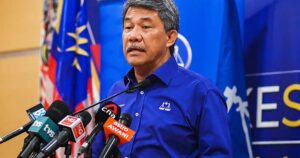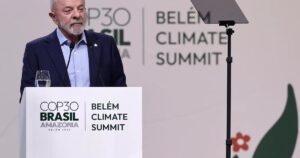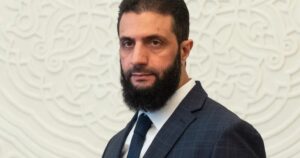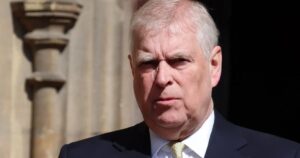
Healthcare experts say addressing the workforce shortage should be a key thrust of the 13th Malaysia Plan (13MP) which was tabled in the Dewan Rakyat earlier today.
Prime Minister Anwar Ibrahim said Putrajaya will allocate RM40 billion for the health sector under the 13MP. Apart from building and upgrading health facilities in several states, Anwar also said a framework for professional development will be developed to ensure talent retention in the health sector.

Galen Centre for Health and Social Policy CEO Azrul Khalib told FMT that the RM40 billion allocation should fund long-term investment in healthcare infrastructure, modernisation of medical equipment, and improvements to the workplace environment.
He also said it was crucial to continue developing the public health workforce by offering students scholarships or grants for training as fewer students are now opting for STEM subjects.
“We’re heading for a severe (workforce) shortage (and) we may have to bite the bullet and bring in foreign healthcare workers from countries like Indonesia,” he said.
“We also need to invest more in health literacy programmes that inform and empower people to take charge of their health. A sedentary lifestyle, poor diet and the lack of effective obesity treatments must be addressed.”

Malaysian Medical Association president Dr Kalwinder Singh Khaira said addressing worker shortages must be prioritised as it continues to be one of the biggest issues facing the public healthcare system.
Kalwinder said although the government’s plan to upgrade more than 1,700 dilapidated public health clinics and build new facilities across the country was timely, it should be accompanied by clear timelines to ensure accountability – and corresponding plans to boost human resource capacity.
“We welcome plans for a national framework for development in the health sector to address human resource needs. We hope this will encompass all healthcare professions in the ecosystem,” he said in a statement.
Meanwhile, Federation of Private Medical Practitioners’ Associations Malaysia president Dr G Shanmuganathan said the RM40 billion figure must be viewed in the context of Malaysia’s chronic underinvestment in health as national health spending in Malaysia, at just over 2% of GDP, lags behind regional benchmarks.

Shanmuganathan said the focus on infrastructure upgrades, digitalisation and public-private collaboration in the 13MP was timely, but warned against centralised, top-down digital projects that exclude frontline providers such as general practitioners (GPs).
“If the RM40 billion is to truly transform healthcare … it must rebuild trust, empower providers and improve patient care — especially at the community level where most care begins.
“Without interoperability with private clinics and pharmacies, digitalisation efforts will fall short of their potential,” he said.
Shanmuganathan also said the RM40 billion must be accompanied by structural reforms, transparency and clear measurable outcomes.
“The real question is not only the size of the budget but how effectively and equitably it will be used. If poorly governed, even RM100 billion will not fix systemic issues,” he said.






